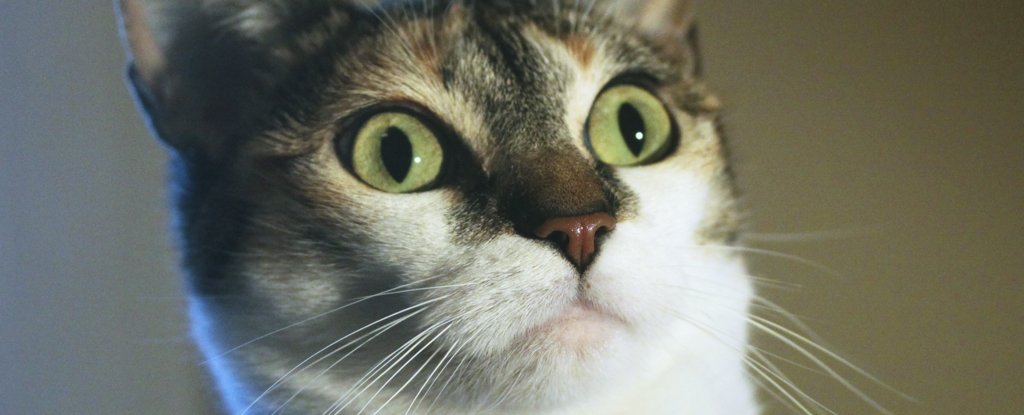Products You May Like
To many members of the feline family, perennial herb catnip (Nepeta cataria) is an irresistible psychoactive treat that induces short bouts of drooling, pawing, and writhing pleasure.
Not satisfied with merely rolling among its foliage, many kitties will tear and crumple the leaves, prompting researchers to investigate the purpose of this wanton destruction.
What appears to be an act of pure hedonism could also have a more medicinal purpose. According to a new study, the additional damage to the leaves releases significant amounts of insect-repelling compounds into the air, bathing the cat in a natural pesticide.
While N. cataria is the most commonly recognized cat intoxicant, a number of plants including valerian (Valeriana officinalis) and a species of kiwifruit called silver vine (Actinidia polygama) also contain compounds that induce odd behaviors in domestic and wild cats.
Two such chemicals are nepetalactol and nepetalactone – figure-eight-shaped molecules classed as iridoids, which are produced by plants like catnip and silver vine to ward off insect attacks.
Nepetalactone also happens to titillate a set of receptors inside feline nasal cavities, triggering a cascade of responses that make a quick roll in the leaves impossible to ignore.
Previous research joined the dots, demonstrating the cat’s vigorous actions bruise the leaves of catnip and silver vine enough to release sufficient amounts of nepetalactone and nepetalactol to serve as a repellent against the mosquito, Aedes albopictus.
Now the same researchers wanted to know if the biting and chewing behaviors provided additional benefits, or were just a sign of the cat’s exuberance while in the throes of pleasure.
Sixteen healthy lab cats participated in the study, which involved watching their behavior as samples of intact, crumpled, and torn catnip and silver vine leaves and cocktails of iridoids in petri dishes were placed in front of their cages.
The team also conducted a range of other tests on the efficiency of various plant extracts and iridoid mixtures as a mosquito repellent, and the concentrations of volatile compounds surrounding cat-damaged leaves.
Taken altogether, it was clear that the extra damage done by ripping at the leaves really helped get the party started a lot faster.
“We found that physical damage of silver vine by cats promoted the immediate emission of total iridoids, which was 10-fold higher than from intact leaves,” says lead author Masao Miyazaki, an animal behavior researcher from Iwate University in Japan.
Not only was the total concentration higher in both plant types, the mix of iridoids was more complex in torn silver vine leaves, making for a more potent repellent at lower concentrations.
Cats who were exposed to these mixtures were also affected for a longer duration, suggesting their biology has been ‘fine-tuned’ to maximize the insect-repelling doses of silver vine.
“Nepetalactol accounts for over 90 percent of total iridoids in intact leaves, but this drops to about 45 percent in damaged leaves as other iridoids greatly increase,” says Miyazaki.
“The altered iridoid mixture corresponding to damaged leaves promoted a much more prolonged response in cats.”
Using naturally-occurring insecticides stolen from plants and even other arthropods isn’t unknown in the animal kingdom.
Not only have we humans been waving Chrysanthemum extracts around for generations to keep the bugs at bay, lemurs have adapted to rubbing millipedes over their bodies as a form of parasite treatment, while other birds and animals have anointed themselves with citrus leaves for similar ends.
Still, few seem to derive quite the same pleasure from their protective body rubs. These cats seem to be onto something.
This research was published in iScience.
